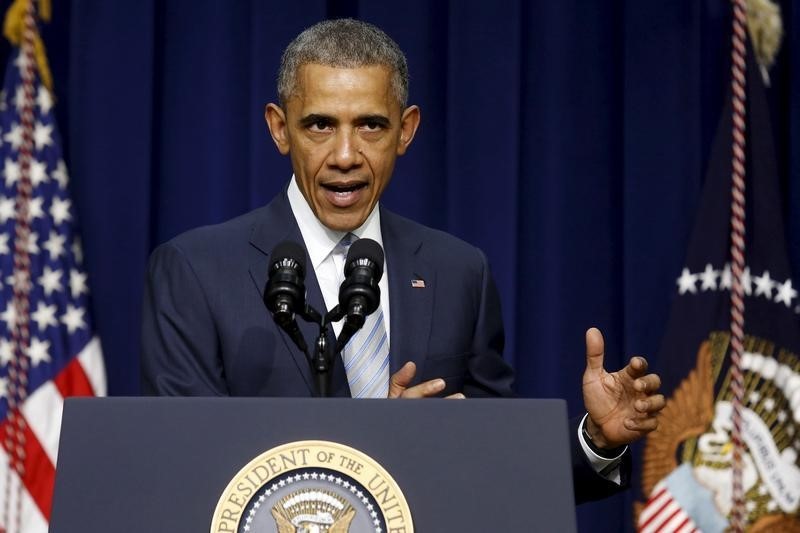By Sharon Begley and Caroline Humer
BOSTON/NEW YORK (Reuters) - U.S. lawmakers and governors are unlikely to act to restore Obamacare health insurance subsidies in at least 34 states should the Supreme Court rule them illegal, health policy experts said on Wednesday.
The influence of elections in 2016 as well as restrictions already put in place in states opposed to President Barack Obama's health law could hamper even a short-term compromise, experts said during a panel discussion in Boston at The Forum at Harvard T.H. Chan School of Public Health, presented in collaboration with Reuters.
Their views run counter to the optimism expressed by many Obamacare watchers, from Wall Street investors to healthcare executives, who are betting either Congress, the White House or individual states could come up with a fix to keep the subsidies flowing to nearly 6.4 million people.
Without subsidies, millions of people could drop their insurance plans and prices of other individual plans could then rise, pushing millions more Americans out of the market. People unable to afford insurance could be exempt from the law's mandate to have insurance, undermining a key component of the healthcare reform law.
The Supreme Court is expected to rule on the case, known as King v Burwell, in the next two weeks. The challenge, brought by libertarian opponents of Obamacare, argues that the law only allows subsidies in states that have set up their own exchanges to sell health insurance, rather than rely on the federal HealthCare.gov website.
If the court decision requires the government to stop paying these subsidies, Republicans may offer some sort of legislation to reinstate them, but are likely to require other concessions that Democrats, including Obama, would refuse to consider. They might include throwing out the law's individual mandate that requires most Americans buy health insurance or pay a fine.
"The Republicans will send something to the president who will reject it," Douglas Holtz-Eakin, president of the conservative American Action Forum, said during the discussion. "There will be a period of stand-off."
Harvard professor Robert Blendon compared the potential wrangling in the aftermath of a Supreme Court decision to unsuccessful efforts to broker even an interim agreement between warring factions in the Middle East process.
"The dilemma is that both parties are going to think it's smart not to reach an agreement," Blendon said. "What's too bad is that we actually could reach a compromise through the (2016) election, and that's what people who care about this should be working on."
The White House has said there is no "Plan B" to continue subsidies should the court invalidate them, and that it is up to the states and Congress to find a fix.
But many of the states using HealthCare.gov decided against setting up an Obamacare exchange because their Republican leaders oppose the law. Some have sought its repeal.
There is a "distinct lack of political will" to embrace any part of Obamacare in states like Texas, which are also home to the largest numbers of uninsured people in need of subsidies, Harvard professor John McDonough said.
A decision against the government would likely come up in the 2016 elections. "A lot of people will be voting on this issue," McDonough said.

A replay of the discussion is available at http://theforum.sph.harvard.edu/events/americas-healthcare-future/.